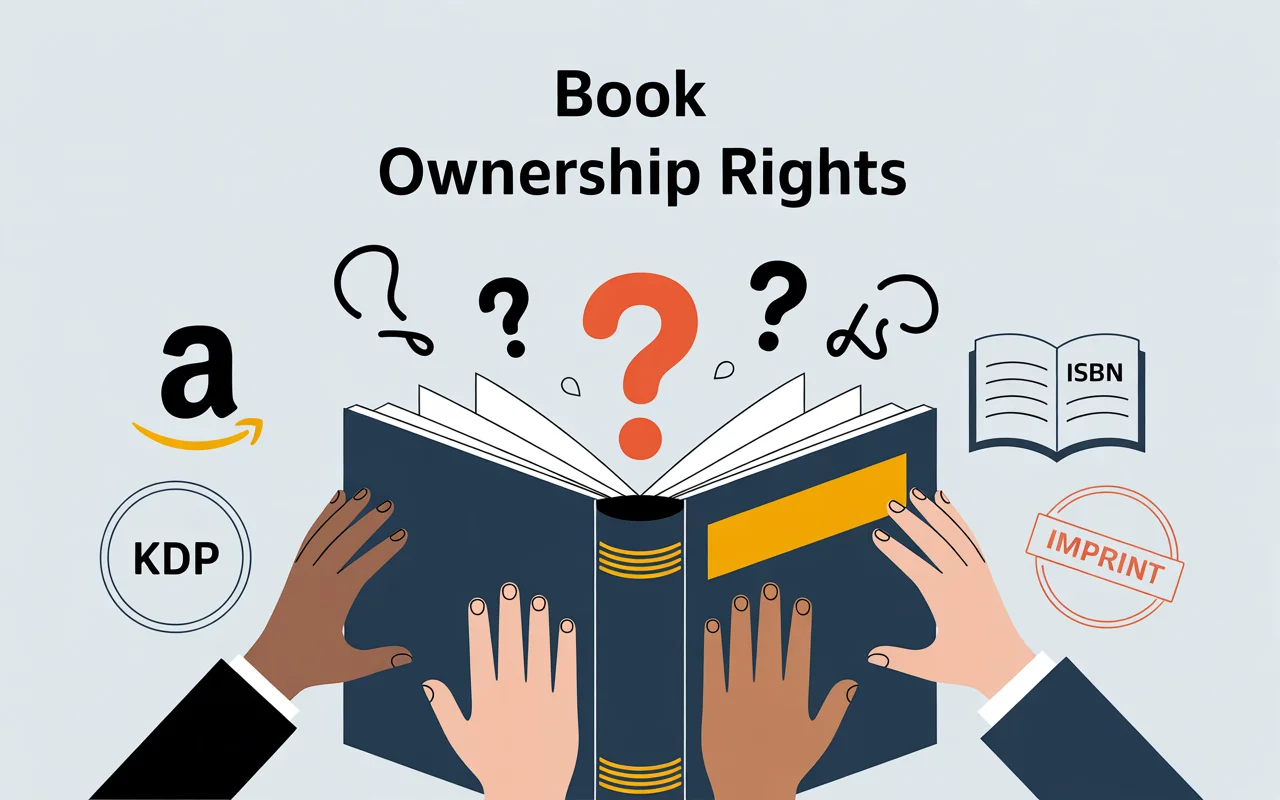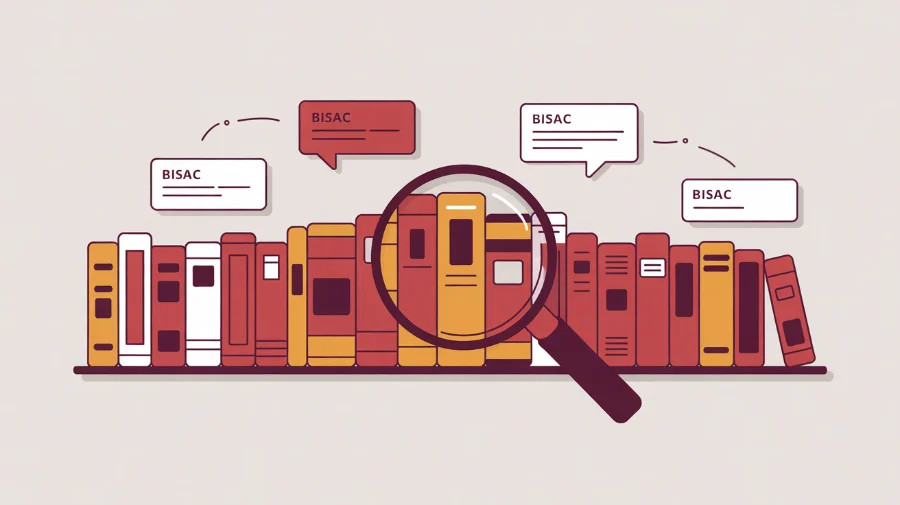
Publisher Rights in Self-Publishing: Who Really Owns Your Book?
Confused about publisher rights when self-publishing? Learn the truth about who owns your book when using free ISBNs from Amazon KDP and other platforms. Discover what publisher rights really mean and how to protect your work as a self-publisher.
Publisher rights are less talked about when it comes to self-publishing a book, and they are often misunderstood. Yet publisher rights can significantly impact an author’s control over their work and future publishing decisions. Self-publishing platforms make it easy for authors to publish their work, but they never explain who holds the publisher rights. This becomes especially important when an author uses an ISBN provided by the self-publishing platform, as free ISBNs provided by platforms like Amazon KDP have their own imprint names. The question is: if you use Amazon KDP’s free ISBN to publish your book, does Amazon hold publisher rights to your book?
What are Publisher Rights?
Publisher rights refer to the legal rights held by a book’s official publisher. These rights affect everything from industry recognition to book distribution and are tied to who controls the ISBN assigned to a book.
Imprint names are registered alongside ISBN registration. An imprint name is how a book publisher identifies itself. A book publisher can have multiple imprint names, such as an imprint name for each book genre. There is no legal requirement for using an imprint name when obtaining an ISBN. However, publishers use their company names to brand book distribution and gain recognition more easily.
The Global Registration of Publishers (GRP) is a database of book publishers around the world that use ISBNs. This database is maintained by the International ISBN Agency, and all national ISBN agencies contribute to this database by adding book publisher information.
What Publisher Rights Do Authors Hold When Self-Publishing a Book?
In traditional publishing, book publishers handle every aspect of getting authors’ works published, from manuscript development to printing, distribution, and marketing.
But this differs from self-publishing. A self-publisher is both an author and book publisher. This remains true even when the author uses a self-publishing platform like Amazon KDP. Amazon KDP is a book print-on-demand service provider, they are not a book publisher.
Publisher rights become a little complicated when authors decide to use Amazon KDP’s provided ISBN. An ISBN registered by Amazon KDP will have the KDP imprint name. By using Amazon KDP’s imprint name and ISBN, you are communicating to the world that Amazon KDP is your book publisher. The question is: does Amazon KDP hold publisher rights over your book if you’re using their ISBN and imprint name?
The simple answer is NO.
Publisher rights are legal rights, and you are not signing your book over to Amazon KDP by using their ISBN. One thing to note is that you can’t change your book’s ISBN after your book is published. However, you can republish your book using a different ISBN in the future if you decide to change from Amazon KDP’s ISBN and imprint name.
Additionally, Amazon KDP offers an extended book distribution service, which is optional. You have to select this option during the publishing process. This gives Amazon KDP permission to distribute your book beyond the Amazon marketplace to retailers such as Barnes and Noble and many other book retail websites. Extended book distribution service still doesn’t give Amazon KDP publisher rights. However, you can’t publish the same book through other print-on-demand services like IngramSpark once you choose to use extended book distribution.
Misinformation About Publisher Rights
There is a lot of misinformation about self-publishing. You may find information online claiming that by using Amazon KDP’s free ISBN, Amazon KDP becomes your book’s publisher, which is not correct. You are a self-publisher, which means you are both the author and publisher of your book.
On your book listing online, Amazon KDP’s imprint name will show up, making it seem like they are the publisher of your book, but legally they are not. This is why it’s important to include contact information, website details, etc., on the copyright page within your book to help make it easier to prove that you are the creator of the work and the publisher.
I used Amazon KDP’s free ISBN as an example. This applies to all self-publishing platforms that offer free ISBNs under their imprint name to publish a book on their platform. We at Bookllo Publishing offer ISBN services through FreeISBN.com. Our ISBN service helps you assign an ISBN to your book under our imprint name. It is similar to Amazon KDP’s free ISBN, you don’t give us publisher rights or ownership of your book by using our imprint name.
Final Thoughts
As a self-publisher, keep good records of your book manuscript drafts in digital and print formats before and after publication. In case of legal disputes, these records will become valuable. Also, you are the copyright holder of your work at the time it is created. Registering copyright with your local government office will give you extra protection, but keeping good records of the work you have created is always recommended.
Please don’t sign any legal documents carelessly, and be careful of book publishers who charge you service fees and also claim ownership of your book. If you work with a publishing service provider and use print-on-demand services like Amazon KDP, make sure the account is registered under your name and you have control over it.
Some national ISBN agencies attach legal aspects to the ISBN registration process, which is just a way of bureaucracy and control. ISBNs help with book cataloging and distribution. An ISBN is not a legal way to prove ownership of a book. You can publish and sell books without an ISBN, though it will be difficult for book retailers to catalog your book since barcode scanning is used during sales and inventory management. If you don’t have an ISBN, then there’s no barcode for your book.

Araix Rand
Book Publicist
Araix has been helping authors with self-publishing and marketing their books. Additionally, he writes for various business and marketing blogs.
More posts by Araix Rand

